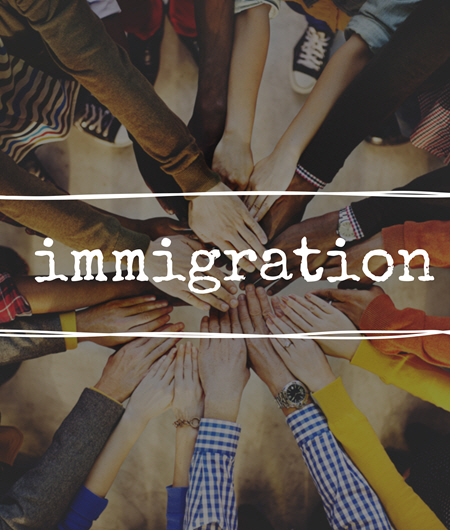 Evaluation is part of the immigration process.
Evaluation is part of the immigration process.
Leaving home. It was not an easy decision, but you had to, and now you need to find your way through the legal system here. It’s scary and overwhelming, and there is a lot at stake.
First step – you need a good lawyer.
Second step – you need a good psychological evaluation.
A psychological evaluation by a trained professional can help make your case for you when there is not a lot of other evidence. It tells your story to the judge, makes him see you as a person, not just another case.
Research by Physicians for Human Rights Network shows that cases with psychological evaluations succeed 89% of the time. Cases without evaluations have a 37% success rate.
You want to make sure you have the best chance for success. Let me help you with care and expertise.
 Let me help with the immigration process.
Let me help with the immigration process.
I’ve taken the Physicians for Human Rights training and have studied with Georgia King. I was a newspaper reporter for about ten years; writing a story is one of the best things I can do. And, that’s what most asylum applications lack – that human touch that makes the court understand the suffering that makes someone flee their home.
Somali poet Warsaw Shire writes in her poem, “Home”:
no one leaves home unless
home is the mouth of a shark
you only run for the border
when you see the whole city running as well.
The court needs a document to make them understand this, too.
I do assessments for Asylum, VAWA, and Hardship visas. Not every case is suitable for telehealth, but I am open to meeting at the attorney’s office with proper precautions.
If an interpreter is needed, I prefer to use the one with whom the client is most familiar instead of bringing in someone new. I take care to make this as easy as possible; I know telling this story again is hard.
These assessments are by nature stressful and sensitive, and the fewer new people to whom the client reveals their story, the better the results will be.
 How this works.
How this works.
My evaluations are 10-15 pages focused on telling your story. I meet with clients twice for about 1.5 hours each time, generally about a week apart. You will be given some paperwork to fill out to save time, mostly about family members, proper spelling of names and places, and other issues needed for the report.
There will be some questionnaires to fill out about symptoms and feelings, provided in advance. These help me give some numbers to the judge, extra documentation for trauma and hardship.
I will collaborate with your attorney and clear up inconsistencies before you are in court.
I will provide a comprehensive mental status evaluation, diagnostic evaluations, and recommendations to support your case.
Evaluation costs are usually $1,100, though I often have reduced fees for documented hardship cases.
 Why this matters to me.
Why this matters to me.
My grandfather came here in 1921. He was Irish, first moved to England, and then came here. His older brother inherited the family farm, and there was little work in Ireland for him. He found a lot of prejudice against the Irish in England and not much work.
My grandfather landed in New York when immigrants could simply show up and pass an interview. Three years later, immigration rules made it much harder, with quotas for people from different countries. Some countries had high quotas, and some were low.
Though getting in was easy, it was hard to get a job in New York; signs read, “No Irish need apply.” I don’t like excluding people. America is supposed to be the place where people come when they can’t stay where they are.
There’s a giant statue in New York Harbor with a poem that says so. I want to help keep it that way by providing an ethical, fair evaluation. (FYI, quotas for Ireland are still low.)
Right foot forward toward your American Dream.
Let’s get started making sure you get your opportunity to start over, too.
Call me for a discussion on how we can make your American Dream a good one.

